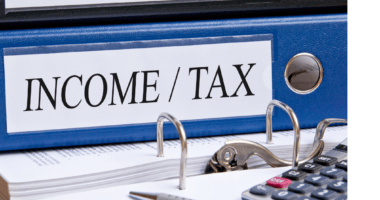Gross domestic product (GDP) has slumped to 5% in three months ended June 2019, reported by India’s Central Statistical Office. This growth rate is much lower than the 8% logged last year. The economy of the country is facing the demand slowdown in the sectors like car sales, industrial production, machinery imports, consumer products and so on.
To tackle the situation, the government has recently announced measures which aimed at triggering sales and making more funds available in the market. These measures are encouraging but not enough to counter the current slowdown in the economy. The policymakers shall consider putting extra money in the hands of the taxpayers by providing them with tax benefits.
Giving tax benefits will increase the purchasing power of the taxpayers as they will spend more. This will, in turn, lead to a rise in the demand for the products and will encourage more investments in the businesses.
Also Read: Tax for Middle-Income Earners Likely to Change under Direct Tax Code
It’s true that lowering taxes can risk the country’s state of public finances. If the government enhances the tax benefits for the taxpayers, the direct tax revenue is likely to come down and the government’s fiscal consolidation targets will be difficult to achieve. However, looking at the continuous economic slowdown, the government should give a try to revise our bulky rulebook of taxation.
The overhauling of the direct tax laws is already in progress, from tax slabs and income tax assessment to processing of returns and scrutiny systems are on the plate for revision. The DTC panel has already submitted its report to the finance ministry. The report has recommended a cut in tax rates, removal of various taxes imposed that adds to the difficulty in calculations and many more.
Once the finance ministry examines the DTC report, they will prepare a draft law, which will be circulated for discussion before a bill is placed in Parliament for approval. All these processes are time-consuming and may lead to a further economic slowdown.
For the time being, the government can introduce measures that do not need a new law. For instance, the tax rates for each slab can be lowered, different taxes levied can be removed.
The government, recently, withdrew the surcharge, introduced in the July 2019 Budget, on the earnings of the foreign investors. The same relief can be extended to the individuals in the higher income brackets. This move will not only revive their spirits but will also stop them from shifting to a different country with lower tax regimes.
So, if the surcharge goes, the education cess must also be removed. The funds needed for the education sector can be drawn from the usual pool of budgetary allocations. Also, the government may axe the standard deduction for those above the taxable limit, which will ease the calculation of it. If there is a big drop in the tax rates, nobody will be at disadvantage and the taxpayers of the country will be glad about it.
I am an aspiring Chartered Accountant. I spend most of my free time dredging through the various Indian finance subreddits. I am a semi-professional bowler with a high strike rate every time there is a new tax reform!





